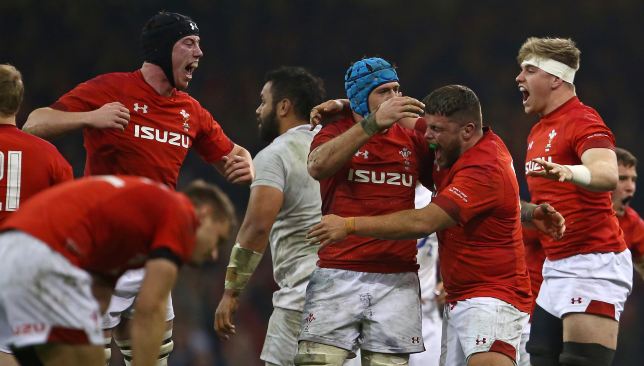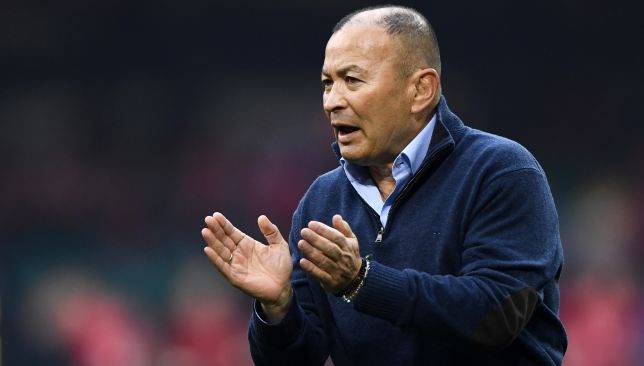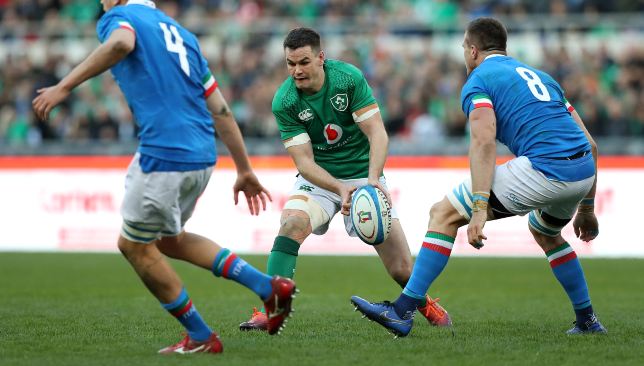
Elsewhere, Ireland and France secured victories against Italy and Scotland.
Here, we break down the good and bad points from the weekend’s action.
WALES
Good: A sensational win for the home side. Substitute Dan Biggar brought a level of composure and played a central role in both tries. Overall, Wales took their chances at the right time and made better use of their possession (65 per cent) and territorial advantage (63 per cent). Their discipline was also flawless, conceding only three penalties in comparison to England’s nine.
Bad: Gatland’s side need to tighten up at the line-out where they enjoyed a meager 76-per-cent success rate. Although it may seem harsh to point out only three steals from 13 throws, it was the errors that resulted from the creaking set-piece that caused concern. On one occasion Ken Owens’ throw was knocked on for an England scrum and just before the hour mark, the Dragons lost possession from Owens throw. Small errors, but an area for improvement before the short journey to Murrayfield to take on Scotland.

ENGLAND
Good: Starting the game at warp speed, the Red Rose were physical, fluent and brought boundless energy in the opening 40 minutes. The displays of Tom Curry, Courtney Lawes and George Kruis were all excellent. And despite the grand slam dream being over, the championship remains open with England having a smoother run-in against Italy and Scotland at home, in contrast to Wales away trip to Scotland before facing Ireland on March 16.
Bad: Eddie Jones’ side failed to gain a foothold in the contest after the break and made little impact on the possession (35 per cent) and territorial front (37 per cent) over the 80 minutes. To show the pressure England were under, they were forced to make 110 more tackles than Wales (223 in contrast to the hosts 103) and were rudderless going forward in the second period, kicking only three points through the boot of Owen Farrell.

IRELAND
Good: A win is a win, but many would have expected Ireland to stick 50 points plus on the Azzurri. They conceded single-digit penalties which is a positive and won 99 per cent of rucks (128 out of 129). With the championship still to play for, the Men in Green will go back to the drawing board at Carton House later this week, rectify the errors and aim for a strong display against France in two weeks’ time.
Bad: Where to start. There was a lack of cohesion in attack, with Ireland not executing their plays as well as normal. Passes fell to ground (15 handling errors) and there was no fluency going forward. In defence, there was some ill-discipline that gave Italy the chance to apply pressure. The visitors struggled at the line-out – with just 15 successful throws out of 20 – and hooker Sean Cronin was subsequently replaced after 48 minutes. The form of Johnny Sexton and Conor Murray is also a concern.

ITALY
Good: Running a poor Ireland side to within ten points represents a boost for Conor O’Shea’s team. In fact, on the stats board, they showed a vast improvement from their defeats to Scotland and Wales, especially in terms of defenders beaten, clean breaks and rucks and mauls won. Tito Tebaldi, Jayden Hayward and Tommaso Allan were all immense.
Bad: It was Italy’s 20th-successive Six Nations defeat and they really need to record a victory against either England or France to show some form of progress this campaign. O’Shea is doing incredible work behind the scenes, but if there are no wins to show for their efforts, then it hard to pinpoint much improvement.
FRANCE
Good: Jacques Brunel will be pleased to finally secure his first win of the campaign following two disappointing defeats. Aside from Les Bleus’ 100-per-cent success rate at both line-out and scrum time, the performances of Antoine Dupont and Romain Ntamack will surely add confidence ahead of remaining fixtures against Ireland and France. Two exciting youngsters who look key to France’s game plan for years to come.
Bad: Their discipline was a disgrace, conceding three early penalties (10 overall) for playing the ball on the floor. Discipline is key in professional rugby and France need to tighten up in this area if they are to have any chance of recording another victory this tournament.

SCOTLAND
Good: Hard to find many positives, especially for a side who were expected to step up after a solid 2018 campaign. Full-back Blair Kinghorn ran well, but Les Bleus attacked in waves to prevent the Scots from creating scoring opportunities.
Bad: The loss of key men Stuart Hogg and Finn Russell has certainly made the Scots look low on creativity going forward. They lacked composure and detail in attack and defence, conceding 16 penalties and missing 35 of their 156 tackles in total. They also failed to make use of the numerical advantage when Yoann Huget was sin-binned. Gregor Townsend’s side need to tighten up or they’ll risk losing three matches in a row against Wales in two weeks.